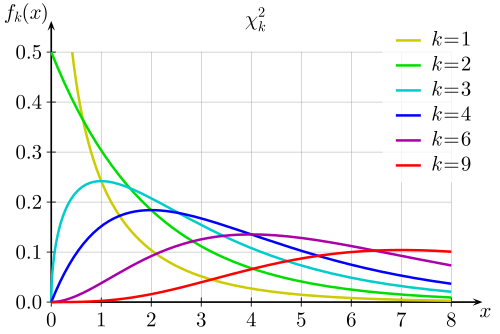Chi-Square Distribution:
Definition: The Chi-Square Distribution is a continuous probability distribution that arises in statistics. It is commonly used to model the distribution of the sum of the squares of independent standard normal random variables, where is known as the degrees of freedom (). It's denoted as .
Probability Density Function (PDF): The PDF of the Chi-Square Distribution is defined as:
Where:
- is the random variable.
- is the degrees of freedom.
- is the gamma function evaluated at .
Mean and Variance: The mean of the Chi-Square Distribution is , and the variance is .
Graphical Representation:
Here's a probability density function (PDF) plot of the Chi-Square Distribution for various degrees of freedom ():

In this graph, you can see the PDF for different values of . As increases, the Chi-Square Distribution becomes more symmetric and approaches a normal distribution.
Use Cases:
- Hypothesis Testing: The Chi-Square Distribution is commonly used in hypothesis testing, especially in tests of independence and goodness of fit.
- Confidence Intervals: It is used to construct confidence intervals for population variances.
- Statistical Inference: The Chi-Square test statistic is used to determine if observed data fits an expected distribution.
The Chi-Square Distribution plays a crucial role in various statistical tests and is fundamental in the field of inferential statistics. It is particularly useful when dealing with categorical data and making inferences about population variances.
Comments